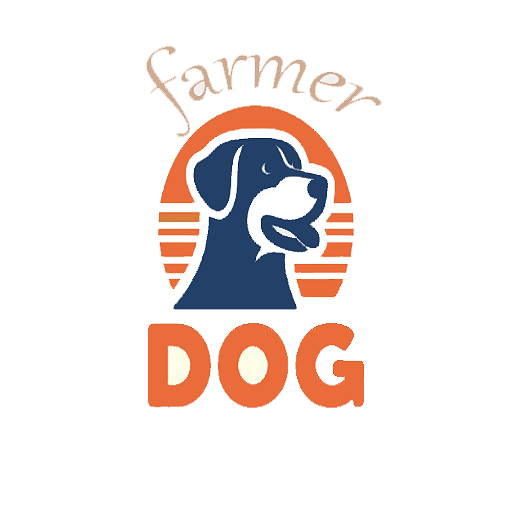Farm dogs play a vital role in agricultural settings, often working tirelessly alongside farmers to manage livestock, protect property, and assist with various tasks. Their dedication and resilience are undeniable, but their unique working conditions necessitate a tailored approach to their health and well-being. This article delves into the specific health considerations for farm dogs, highlighting the challenges they face and outlining proactive strategies for maintaining their optimal health.

1. The Unique Demands of Farm Life
Farm dogs face a distinct set of environmental and occupational pressures compared to their urban counterparts. These pressures often include:
- Exposure to harsh weather conditions: Extreme temperatures, rain, snow, and fluctuating climates can take a toll on a dog’s coat, skin, and overall health.
- Exposure to various hazards: Pesticides, herbicides, fertilizers, and other agricultural chemicals can pose significant risks if ingested or absorbed through the skin. Furthermore, farm environments often contain sharp objects, potentially leading to cuts and injuries.
- Increased risk of parasites: Ticks, fleas, heartworms, and other parasites are more prevalent in rural areas, demanding regular preventative measures.
- Proximity to livestock: While dogs can form strong bonds with farm animals, they may be exposed to diseases or parasites carried by the livestock.
- Physical exertion: Farm dogs are often involved in demanding tasks like herding, guarding, and tracking, requiring significant physical stamina.
- Potential for isolation: Depending on the farm’s size and location, farm dogs may experience periods of isolation, which can impact their mental well-being.
2. Nutritional Considerations for Farm Dogs
A farm dog’s nutritional needs differ from those of a pet dog, particularly in terms of energy requirements and specific nutrient needs.
- High-quality food: Choosing a high-quality, complete and balanced diet tailored for working dogs is crucial. This often involves a diet with higher protein content and specific supplements, depending on the dog’s activity levels and tasks. Avoid feeding table scraps, as these can lead to nutritional imbalances and health problems.
- Portion control: Adjusting food portions based on the dog’s activity level and size is vital for maintaining a healthy weight. Overfeeding can lead to obesity, increasing the risk of various health issues.
- Hydration: Providing ample fresh water is paramount, especially in hot weather or during periods of intense activity.
3. Preventive Healthcare and Regular Veterinary Care
Regular veterinary checkups are essential for any dog, but even more so for farm dogs.
- Parasite prevention: Regular deworming, flea and tick treatments, and heartworm prevention are crucial to protect farm dogs from potentially debilitating parasites.
- Vaccinations: Maintaining a robust vaccination schedule is essential for protection against common canine diseases. Farm dogs should receive vaccinations appropriate for the potential exposure in their environment.
- Dental care: Farm dogs often have increased wear and tear on their teeth due to their work and environment, making regular dental care vital. This may include professional cleanings and preventative measures to reduce plaque buildup.
- Injury management: Proper first aid knowledge and quick access to veterinary care are essential for treating injuries that may arise from farm work. Farm owners should be prepared to deal with potential injuries, such as cuts, sprains, and bites.
4. Mental Well-being and Enrichment
Farm dogs, even those working, need mental stimulation and enrichment to maintain their overall well-being.
- Training and socialization: Consistent training and socialization are crucial to prevent behavioral issues and maintain a well-adjusted dog.
- Playtime and interaction: Providing opportunities for play and interaction with humans and other animals can help reduce stress and improve mental health.
- Environmental enrichment: Providing a stimulating environment, including toys, puzzles, and opportunities for exploration, can prevent boredom and promote mental well-being.
5. Case Study: The Impact of Pesticide Exposure
A recent case study highlighted the importance of pesticide awareness in farm dog health. A farm dog showed symptoms of lethargy, vomiting, and tremors after being exposed to a pesticide application. Prompt veterinary intervention, including supportive care and monitoring, allowed for recovery. This case emphasizes the need for farm owners to understand the risks of pesticide exposure and to implement protective measures for their dogs.
6. Working Dog Considerations
Working farm dogs often have specific physical demands.
- Exercise and rest: Providing appropriate exercise and rest periods is crucial for maintaining physical health and preventing injuries.
- Task-specific training: Training farm dogs for specific tasks is essential for their well-being and to ensure they perform their duties efficiently and safely.
- Monitoring for stress and fatigue: Observing the dog for signs of stress and fatigue during work is crucial for preventing injury and burnout.
Conclusion
The health and well-being of farm dogs are intertwined with the success of the farm operation. By understanding the unique demands of farm life, prioritizing preventive healthcare, providing a balanced diet, and ensuring mental enrichment, farm owners can significantly improve the quality of life for their canine companions. Regular veterinary care, proactive parasite prevention, and awareness of potential hazards are key components in maintaining a healthy and productive working farm dog. Ultimately, a commitment to a holistic approach to their care will ensure both the dog’s well-being and the continued success of the farm.
